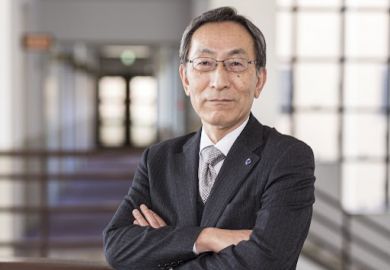The scientific community has seen “a lot of talking but not much real action” towards diamond open access, leaders of the Dutch Research Council (NWO) said, as the funder launches a new initiative to “flip” academic journals.
Under the Diamond Open Access Fund, up to €500,000 (£416,000) will be distributed among editorial boards and academic societies looking to switch their journal to diamond open access, with up to €50,000 available per project.
Free to read and free to publish in, diamond journals are seen as an alternative to the dominant open-access model, which has locked sectors into expensive “read-and-publish” deals with major publishers, in which traditional subscription fees are replaced by article processing charges.
But while the model has been encouraged by European policymakers, there are concerns about the sustainability of diamond journals, which often rely on volunteer labour and donations from universities and scholarly societies.
Under the NWO initiative, flipped journals must within two years have “a sustainable business model that guarantees that the journal will continue to exist after the project phase”.
Hans de Jonge, director of the NWO programme Open Science NL, told Times Higher Education that in the midst of widespread conversation around diamond open access, “we decided to throw a stone into the water and provide money to make it actually happen”. The research council already supports other diamond open access platforms, including SciPost and the Open Library of Humanities, he noted.
Jeroen Sondervan, the NWO’s programme leader for scholarly communication, said a string of high-profile resignations from journals’ editorial boards in recent years indicated a growing appetite for diamond open access publishing amid “increasing monopolisation” of the landscape by large commercial publishers, with NWO’s new funding instrument serving as “an opportunity to see how we as a funder can help stimulate that sort of model”.
Applicants will be encouraged to make their proposals public, he said, “which will hopefully help other journals learn from that and maybe implement the same model”.
As a national funding body, NWO can fund only researchers affiliated with Dutch institutions, which “limits what we can do”, Mr De Jonge said. “We hope our example will be followed by other national funding councils.”
“It’s really an experiment,” he added. “We want to see what comes out of it, how many applications we receive, and go from there.”




